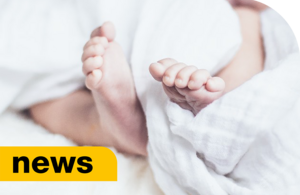Whooping cough cases rise to over 10,000
UKHSA urges pregnant women to get vaccinated to protect their newborn babies as whooping cough cases rise to over 10,000

New whooping cough data published today by the UK Health Security Agency (UKHSA) shows laboratory confirmed cases rising to over 10,000. UKHSA urges pregnant women to get vaccinated to protect their babies from birth onwards.
The latest data for England shows cases of whooping cough peaked in May but continue at high levels, with 2,427 cases reported in June. This follows 555 cases in January 2024, increasing to an updated figure (1) of 3,052 in May – bringing the total number of laboratory confirmed cases from January to June 2024 to 10,493.
Confirmed cases in the second quarter (April to June) of 2024 are very high, exceeding those in any quarter of the last major 2012 outbreak year.
Sadly, there has been one further infant death in June, bringing the total to 10 since the current outbreak began in November last year (one in December 2023 and 9 between January to end June 2024).
Young babies are at highest risk of severe complications and death from whooping cough. Evidence from England shows that vaccination at the right time in pregnancy is highly effective, giving 92% protection against infant death.
From January to June 2024, while most cases (55%, 5,769) were in those aged 15 years or older who usually get a mild illness, high numbers (328) continue to be reported in babies under 3 months of age who are at greatest risk from the infection.
Whooping cough cases have been at high levels across all regions in England, as well as in many other countries, since late 2023 due to a combination of factors. Whooping cough is a cyclical disease that peaks every 3 to 5 years. The last cyclical increase occurred in 2016 following an earlier outbreak in 2012. However, in common with other diseases, cases fell to very low numbers during the pandemic due to restrictions and public behaviours. A peak year is overdue and the impact of the pandemic also means there is reduced immunity to whooping cough in the population.
The latest uptake data for the vaccination offered to pregnant women to protect newborn infants against whooping cough continues to decline - with coverage in March 2024 at 58.9% compared to the peak coverage (72.6%) in March 2017.
Timely vaccination in pregnancy and in childhood are both important to protect vulnerable young infants from serious disease. It is particularly important for pregnant women to get vaccinated against whooping cough, as this allows protection to pass to their unborn baby in the womb so that babies are protected from birth in their first months of life.
All babies are given 3 doses of the 6-in-1 jab at 8, 12 and 16 weeks of age to protect against whooping cough and other serious diseases such as diphtheria and polio, with a pre-school booster offered at 3 years 4 months.
Dr Mary Ramsay, Director of Immunisation at UK Health Security Agency, said:
Vaccination is the best defence against whooping cough and it is vital that pregnant women and young infants receive their vaccines at the right time. Pregnant women are offered a whooping cough vaccine in every pregnancy, ideally between 20 and 32 weeks. This passes protection to their baby in the womb so that they are protected from birth in the first months of their life when they are most vulnerable and before they can receive their own vaccines.
With cases continuing to rise and, sadly, 10 infant deaths since the outbreak began last November, ensuring women are vaccinated in pregnancy has never been more important. Our thoughts and condolences are with those families who have so tragically lost their baby.
Whooping cough, clinically known as pertussis, is a bacterial infection which affects the lungs. The first signs of infection are similar to a cold, such as a runny nose and sore throat, but after about a week, the infection can develop into coughing bouts that last for a few minutes and are typically worse at night. Young babies may also make a distinctive ‘whoop’ or have difficulty breathing after a bout of coughing, though not all babies make this noise which means whooping cough can be hard to recognise.
If anyone in your family is diagnosed with whooping cough, it’s important they stay at home and do not go into work, school or nursery until 48 hours after starting antibiotics, or 2 weeks after symptoms start if they have not had antibiotics. This helps to prevent the spread of infection, especially to vulnerable groups, including infants. However, vaccination remains the best protection for babies and children.
[1] Case numbers are published on a provisional basis. They can either increase as further test results are finalised or decrease when cases tested through antibody levels are subsequently found to be possibly as a result of antibodies from vaccination rather than disease.
UK Health Security Agency press office
10 South Colonnade
London
E14 4PU
Updates to this page
-
Yes, added a small info
-
First published.